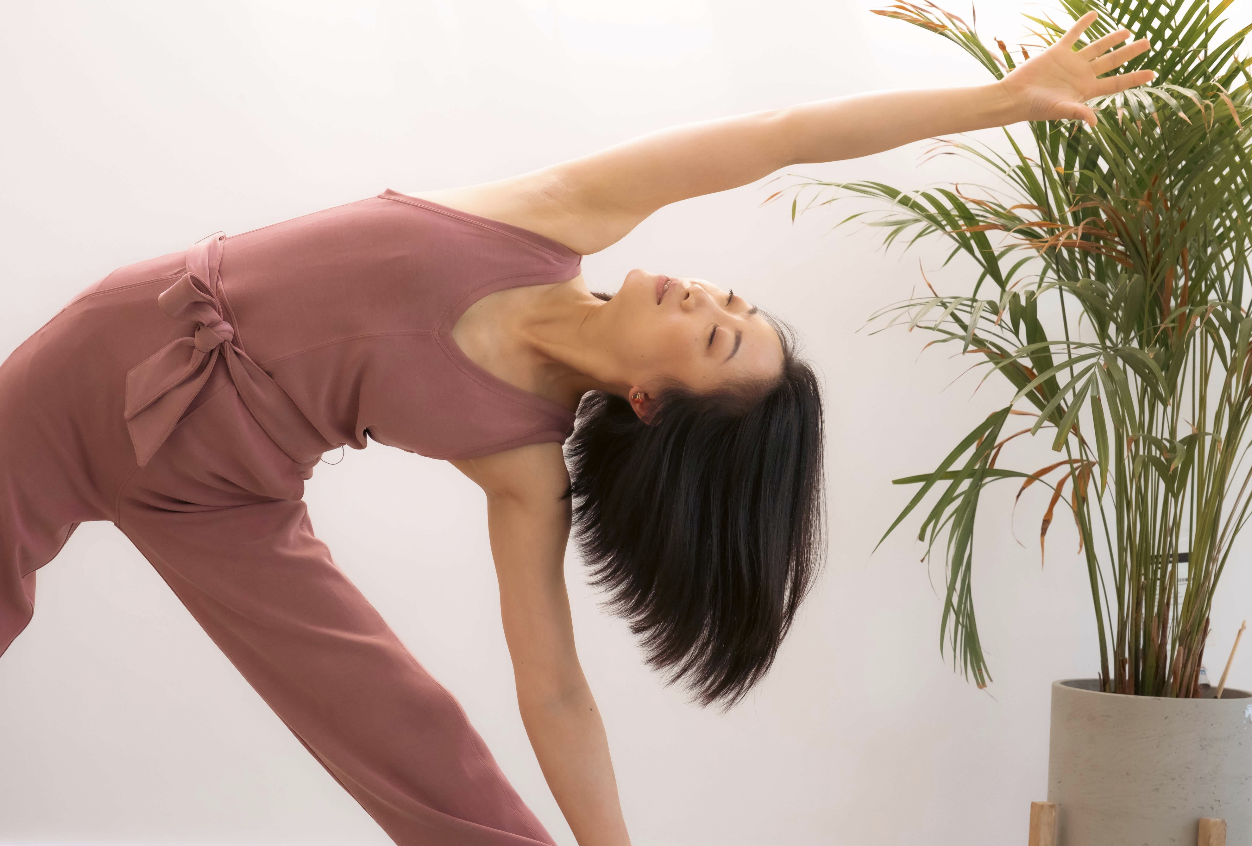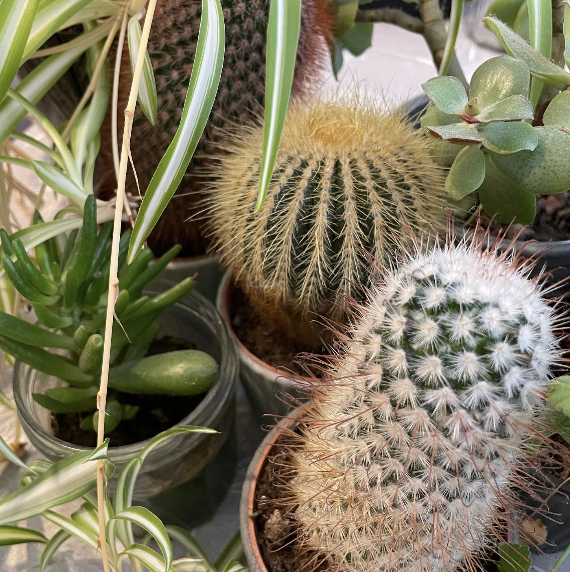Encounters Conference
|8th & 9th December 2022|
Join Us Online…
This two-day conference will host leading, interdisciplinary research presentations from across the arts and social sciences, from Classics to contemporary fieldwork.
Free for all to attend, this conference includes professional training from sought-after CHASE providers and wellbeing sessions inclusive of all ages.
Day Two Programme - Friday 9th December
Please note: the conference programme is subject to change at any point before or during the conference itself.
9:00 - 9:20 Welcome Announcements
Overview from Conference Lead Milly Mulcahey regarding conference layout, programme and commitment to accessibility.
Comments by Direct Kate Lacey and new Deputy Director John Drever.
9:20 - 9:45 Work in Progress
Chair: Milly Mulcahey, Center for Indigenous and Settler Colonial Studies, Kent University
Angela Uhthoff: “Digital Art and it's Creators in Cuba: Identity, Cultural Change and Conceptualization of Revolution”
+ Abstract
Bio: Angela is a Mexican social anthropologist and she also does visual arts. She has a MA in Latin American Studies and a MA in Arts Creation. She has worked as a history teacher, as a painting teacher, and as a Research assistant, and she has done fieldwork in México and Bolivia.
Eliane Correa “Whose tango? - An overview of the (p)layers of appropriation in the tango spaces of Buenos Aires”
+ Abstract
My PhD research is on music tourism and tourism music in Latin America, with a specific focus on Havana and Buenos Aires. I will present on tango tourism and imagery in Buenos Aires and the social cleansing resulting from government policy around promotion of tango in the tourism industry.
Bio: I am a Latinx pianist, composer, producer and ethnomusicologist. I'm one of the key players in the London Latin scene and I tour with Hans Zimmer and other big film music productions. I'm in my MPhil year of a CHASE-funded Music/Social Anthropology PhD at SOAS. My research focuses on tropes of authenticity in music tourism in Latin America, with specific focus on Havana and Buenos Aires. My aim is to generate an anthropological toolbox that might help policymakers in Latin America develop more self-sovereign, decolonised and culturally sustainable initiatives.
9:50 - 10:50am Room One: Practitioner-Researcher
Chair Mark Parker
-
In groupwork, decisions need to be made in order for work to progress. One way in which this might be achieved is through the issuing of directives. There are many turn-shape options, including bald imperatives, question-imperatives and hints (Erving-Tripp 1976; Labov and Fanshel 1977). In her 1990 study of the talk of two single-gender groups engaged in task activities, Marjorie Harness-Goodwin found that boys used high-imposing directives, often based on their own whims, to secure action, visibly displaying asymmetrical relationships. Girls, however, used inclusive pronouns and suggestions for future action. In this presentation, I will discuss the strategies used by three girls’ triads for decision-making during a group project in a primary school art lesson, considering the discursive identities they invoke, resist and maintain, as well as how they position themselves and each other within these discourses. As Harness-Godwin notes, turn-shape cannot be separated from speakers, and their relationships must be considered to understand the intricacies of their conduct. When listening to the data from the three groups, I was struck by how differently each managed the task. After Susan McRae (2009), I consider how the children’s supra-local status in the form group might influence the success of different strategies: in one group, higher relative skill affords decision-making status, in another, the fear incited by a group member allows her to get her way, and in the third, maintaining friendship appears to be the main concern.
Bio: My study is a linguistic ethnography of the discursive identity practices invoked, resisted and maintained by pupils at a north London primary school, considering in particular the area of language and gender. I am in my fifth year (part-time) at Goldsmiths, and complete this study alongside my other job as an inner-London primary school teacher.
-
In this talk, I, as an autistic actor-trainer who was once an autistic student-actor, discuss the issue of the lack of accessibility of current UK actor-training programmes for autistic student actors. While there is some writing on training actors with dyslexia and dyspraxia, and on specific provision for training autistic or learning-disabled actors; there remains a lack of acknowledgement of the needs of autistic students studying in mainstream drama school settings.
In this talk I will discuss why this is: touching on the politics of autism research, public perception of autistic people and preconceptions on what it means to be ‘creative.’ I will then go on to discuss the key areas of the experiences of autistic student actors that I expect to explore in my research; as well as presenting an overview of my findings and research into the topic so far.
Bio: Zoë (she/they) is an autistic actor-trainer, theatre-maker and researcher currently in 1st year of a PhD in Drama at the University of Kent. Her PhD explores accessibility for autistic students in drama schools. Prior to starting her PhD, Zoë trained on the BA European Theatre Arts programme and Rose Bruford College, and the MA Actor Training and Coaching Programme at RCSSD, and brings her professional practice as a performer and actor-trainer, and her autistic lived experience, as a key perspective in her research.
9:50 - 10:50am Room Two: Exploring Normality and Transformation in Historic Texts
Chair Jessica Coulson
-
I am exploring the products of Rochester Cathedral priory's early scriptorium following the Norman Conquest. Specifically, I am seeking to determine what these texts can tell us about the priory's community, communal memory, and their engagement with and belief in the power of the written word. I will be introducing the Textus Roffensis, the Vita Gundulfi and the Miracula Sancti Ithamari Episcopi, explaining why they are important, and how I intend to use these texts in my research. I think the theme of a 'new normal' will be met in my presentation through how these texts reflect the drastic and rather dramatic change between Anglo-Saxon and Norman administration after 1066.
Bio: I am a doctoral researcher at the University of Kent within the Centre for Medieval and Early Modern Studies. I am interested in textual communities and textual identities, particularly Norman engagement with Anglo-Saxon precedent. I am a young father to a gorgeous daughter who will be two by the time this encounter takes place!
-
My project examines textiles as propaganda between 1946 and 1970. Textiles have overwhelmingly been written about with a focus on the domestic sphere, while propaganda has been examined as a matter of shaping the public sphere.
Propaganda art has predominantly been considered in the context of totalitarian states. However, several Western propaganda textiles trouble these compartmentalisations. Three case studies of Cold War era British and American printed textiles will form the basis for this curatorial research project. These designs will be placed within the wider context of propaganda as a contested term in visual and material culture, and will examine how curating propaganda objects involves a critical engagement with the intersecting space they occupy.
Bio: Amber Butchart is a curator, writer and broadcaster who specialises in the cultural and political history of textiles and dress. She is studying towards a practice-led PhD in Curating at the University of Essex, considering how printed textiles were used in Britain and America as a form of propaganda to curate national identities during the Cold War. She is an Associate Lecturer at London College of Fashion, University of the Arts London, and is an external adviser for the National Crime Agency as a Forensic Garment Analyst, working on cases that require investigation of clothing and textiles. She is currently working on an exhibition for the Fashion and Textile Museum in Bermondsey, to open in 2023.
-
"In March 2018, Sinhala mobs unleashed violence against Muslims in several villages around provincial Sri Lanka ((Aguilera-Carnerero, 2021). The trigger to violence was a video recorded on a smart phone and shared widely on WhatsApp and Facebook showing a Muslim restaurant owner confessing to poisoning the stock of his Sinhala patrons. The confession, later discovered to have been coerced, dovetailed into wider conspiracy narratives that had been brewing online for several years: how Muslims were trying to ""Sterilise the Sinhalese"" in a collective attempt to outnumber their Buddhist countrymen and acquire power in Sri Lanka (Aguilera-Carnerero, 2020;, Haniffa, 2016).
Following the initial riots, the government's response was to restrict access to specific social media platforms, including Facebook, YouTube and WhatsApp, island wide for eight days between 7. 15th March. / During this period of ostensible digital communication blackout, Twitter remained accessible, and Sri Lankans gathered there to discuss the disinformation, censorship and associated violence.
Outside of Sri Lanka, the western media eulogised the violence as an example of Silicon Valley's platform accountability being out of control and pitted social media as a vehicle for hate speech and fake news that instigates lethal real-world violence'. Thusly, this poster displays the community clusters on twitter during the social media blackout using a data visualisation program called Gephi. 34,200 tweets and their associated big data across 14 selected hashtags and keywords (including ""freedom of speech"", ""internet shutdown"") were downloaded from Twitter.
The visuals show that the majority of Sri Lankans have a significantly opposing view to how the Western media frames social media's role in the violence. Many in Sri Lanka firmly argue against internet shutdowns and advocate for open internet access for all, especially in times of emergency.
References:
NY TIMES: Where Countries are Tinderboxes and Facebookis the match; Buzzfeed: ""We Had To Stop Facebook"": When Anti-Muslim Violence Goes Viral; AJEnglish In SriLanka, hate speech and impunity fuel anti-Muslimviclence https://t.co/nVDeRov5pN
https//t.co/x7obMOYB2N"
11:00 - 12:00pm Wellbeing Session
Room One: Yoga - Embrace the True Self | Hypnosis - Become Who You Are
led by Cass XuXin
"...Hypnosis is the art of presenting ideas directly to the receptive unconscious mind..." This session, delivered by Cass XuXin, combines ancient practice YogaNidrã and modern science based Cognitive Behavioural Hypnotherapy, MesmeRest, delivering a Therapeutic Deep Relaxation, bringing IMMEDIATE physical and emotional benefits, melting away stress, fear, pain and anxiety.
Room Two: Collage Poetry led by Hanna Randall
No art skills or creativity required! In this session, you will be introduced to word-image collage poetry with examples of artists who use the medium and some warm-up exercises to settle into the creative moment. You will then make your own word-image collage poem in response to a guided prompt. There will be the opportunity at the end of the session to share your artwork with the group, though this is entirely optional. This session is intended to help you to get into meditative flow and state of creative self-expression by engaging with word-image practice and accessible collaging techniques.
In preparation for the session, please gather collaging materials such as newspapers, flyers, magazines, glue, scissors etc.
If you would prefer to work digitally and have access to photoshop or Adobe Express, you are welcome to do so! Universities often grant students free access to the adobe package. Make sure you have downloaded the app and are at least a bit familiar with the tools before the session starts.
Room Three: Growing A Way to Wellbeing
Host: Harry Salisbury - Climate Justice Network
In this engaging session, Emily and Debi from the Kent Community Oasis Garden will talk about the value of community gardening, both to your mental wellbeing and to the planet. Learn more about their sustainable practices and the value of volunteering and getting into nature, as they introduce you to the garden - its vegetable patches, ponds and even the house plant hospital. At the end, you’ll have a chance to ask questions and find out how to get involved.
12:00 - 12:50 LUNCH
12:50 - 1:50pm Room One: Placements
In this session hear from CHASE attendees who reflect on their placement experiences and share opportunities and advice for your placement.
Session Lead: Hanna, the CHASE Knowledge Exchange Hub officer
Lucy Splarn, reflections from my Horrible Histories Placement.
Lesley Carvello, reflections from my Parisian Placement at The Sorbonne.
Nikolaus, reflections from my placement at the June Givanni Pan African Cinema Archive (JGPACA) and current placement opportunities open for CHASE students.
12:50 - 1:50pm Room Two: CHASE Research Networks - Introduction and Panel Discussion
Session Lead: Sandy
Join this session to learn about CHASE Research Networks, the student-led CHASE-funded organisations building community around interdisciplinary research methods, sites of activism, and researcher well-being and advocacy. Hear from the Digital Studies Collective (DiSCo), the Practice as Research Network, Diversity Network, the Climate Justice Network and the Medical Humanities Network followed by a panel discussion with network representatives. Find out how you can benefit by joining a preexisting network, and discover the best ways to start your own.
2:00 - 3:30pm Training Sessions
Room One: Mapping your Research Landscape - Natalie James
In order to build a long-term sustainable research career it is important to have a clear understanding of your research field and how you and your research fit within it. With a well-developed strategic awareness of how your research fits within the ‘research landscape’ you will be in the best position to make decisions about how to build your profile within a dynamic research environment. In this interactive workshop we will explore tools and approaches to assist in strategic awareness and planning for your research.
Room Two: Introduction to Knowledge Exchange and Research Impact (& KEH Events Jury)
This session is for research students who would like to understand more about knowledge exchange (KE) in practice and what knowledge exchange activities look like across different research specialisms. It would also appeal to those who would like to help shape and be part of the discourse around the upcoming CHASE KEH ‘Knowledge Exchange in Practice’ events series.
Knowledge exchange includes any activity that involves/facilitates sharing ideas between academic/higher education (HE) settings and external or non-HE organisations. Therefore, knowledge exchange provides the opportunity to work with people whose approach may differ from your own; whether this be methodological, professional, or otherwise. By sharing research and ideas, scholars and industries benefit from a greater range of expertise and have a greater impact on society. For researchers, this may involve gaining valuable professional development/skills from industry, or enlisting specialist outside expertise to assist with a research problem.
The session will begin with a small panel of KE specialists from CHASE member institutions who will briefly discuss their institution’s approach to KE and what KE activities look like across research specialisms. After the panel discussion, Hanna, the CHASE Knowledge Exchange Hub officer, will announce and detail the first two events in the upcoming CHASE KEH ‘Knowledge Exchange in Practice’ series. Attendees will then move to break-out rooms for a workshop/jury session to create and discuss ideas for further future events in the series that might benefit the cohort. This is an opportunity to really shape the sorts of events that you would like to attend and learn from.
3:35 - 4:00pm Closing Remarks and Thank yous
Closing remarks and distribution of feedback forms by Chase Conference Lead and Management







